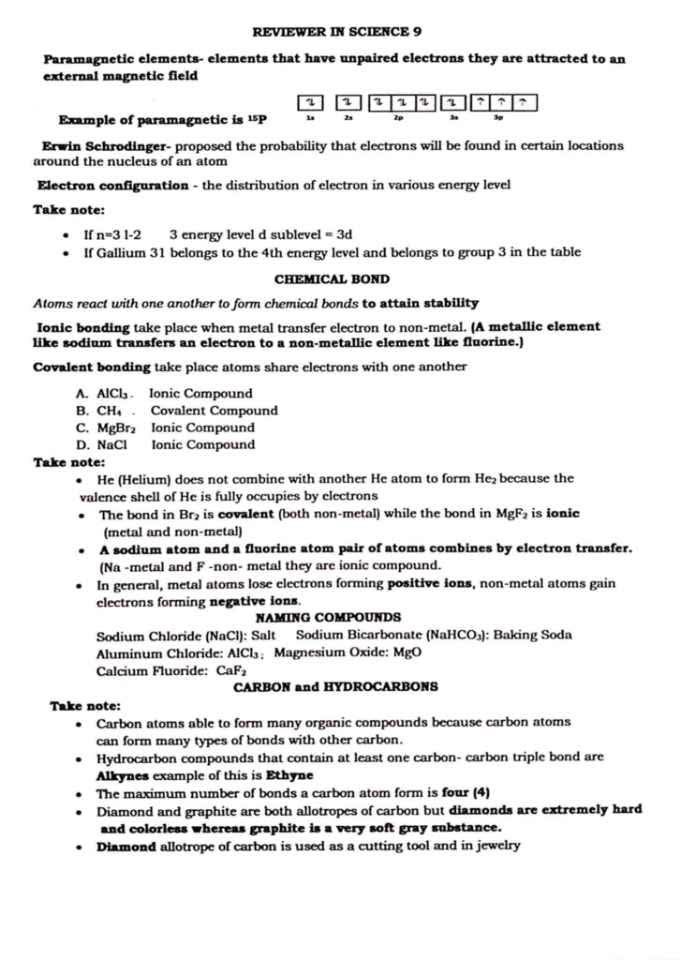What are the properties and examples of paramagnetic elements?

Understand the Problem
The image contains information about paramagnetic elements, chemical bonds, nomenclature of compounds, and properties of carbon and hydrocarbons, likely serving as a study guide for a science exam.
Answer
Paramagnetic elements: unpaired electrons; attracted to magnetic fields. Examples: aluminum, lithium, molybdenum.
Paramagnetic elements have unpaired electrons and are attracted to an external magnetic field. They have a small, positive magnetic susceptibility and do not retain magnetism once the field is removed. Examples include aluminum, lithium, molybdenum, tungsten, and magnesium.
Answer for screen readers
Paramagnetic elements have unpaired electrons and are attracted to an external magnetic field. They have a small, positive magnetic susceptibility and do not retain magnetism once the field is removed. Examples include aluminum, lithium, molybdenum, tungsten, and magnesium.
More Information
Paramagnetism is due to the presence of unpaired electrons in the atom or molecule. These materials show a linear relationship between magnetization and the applied magnetic field under normal conditions.
Tips
A common mistake is confusing paramagnetic and ferromagnetic materials, which have stronger magnetic characteristics. Always check for unpaired electrons.
Sources
- Paramagnetic Materials - Definition, Examples, Properties - geeksforgeeks.org
- Paramagnetic Materials - Definition, Examples, Properties, FAQs - byjus.com
AI-generated content may contain errors. Please verify critical information